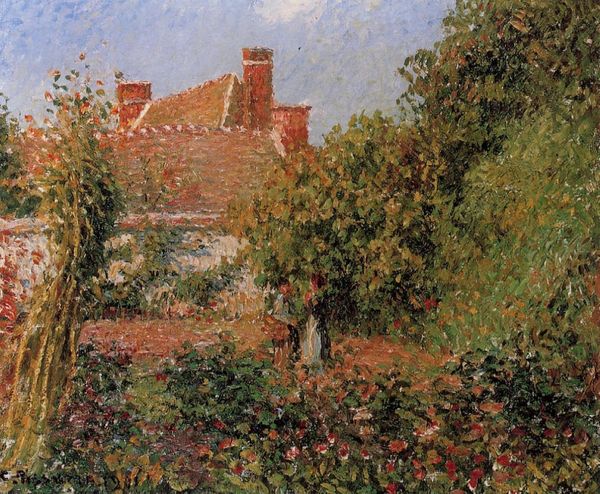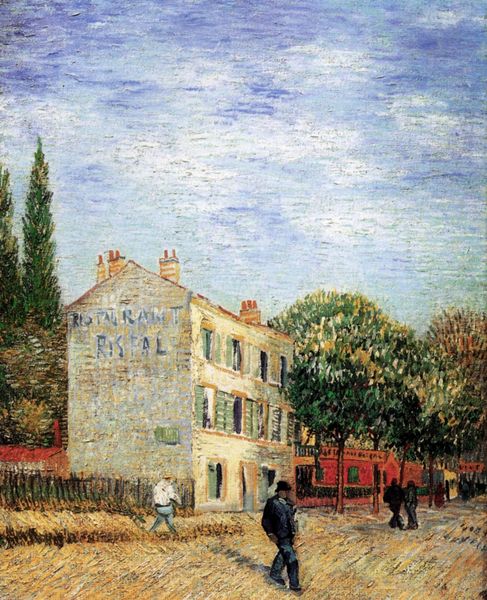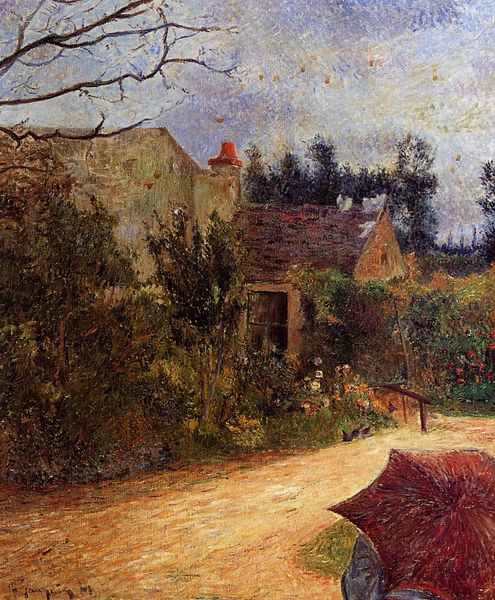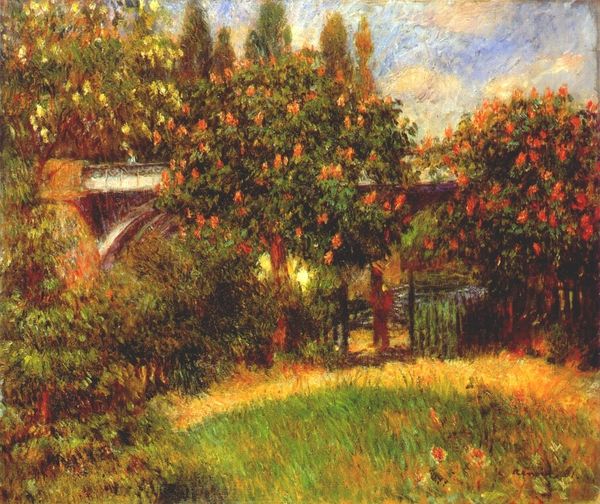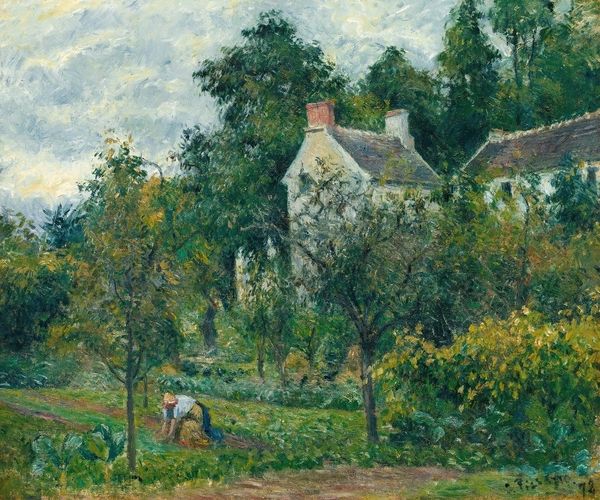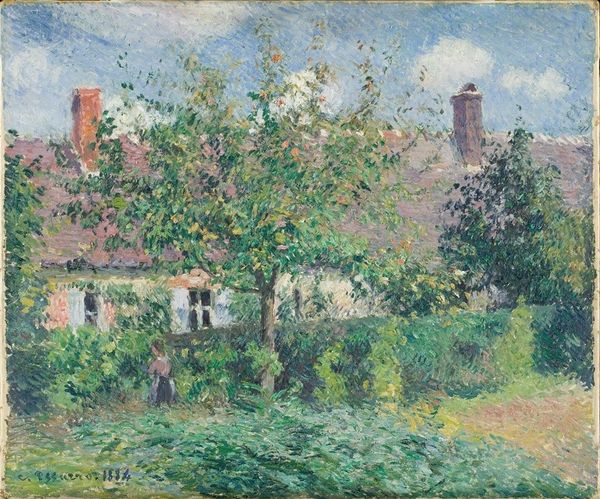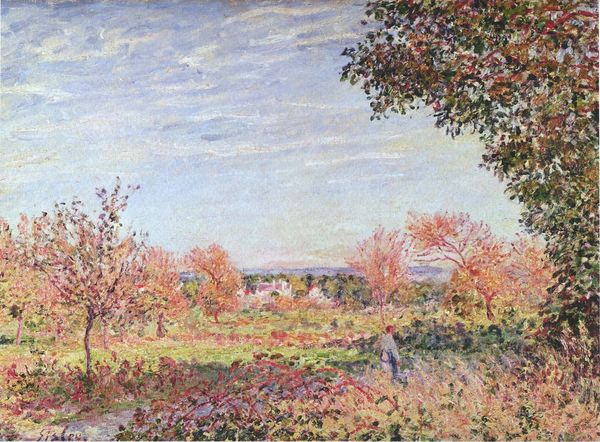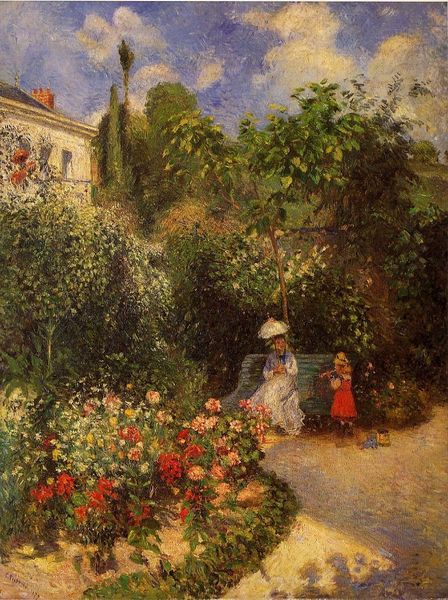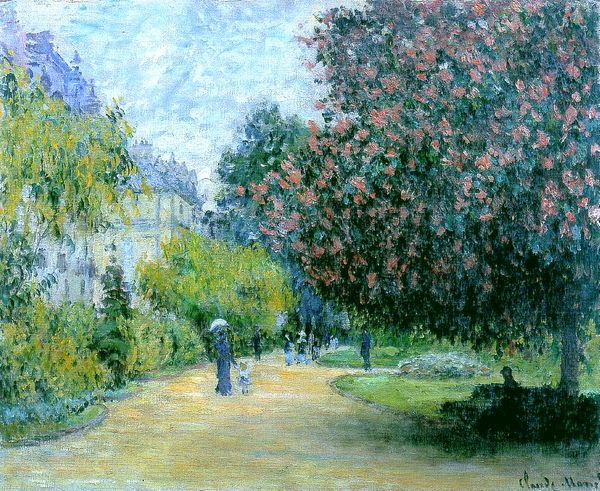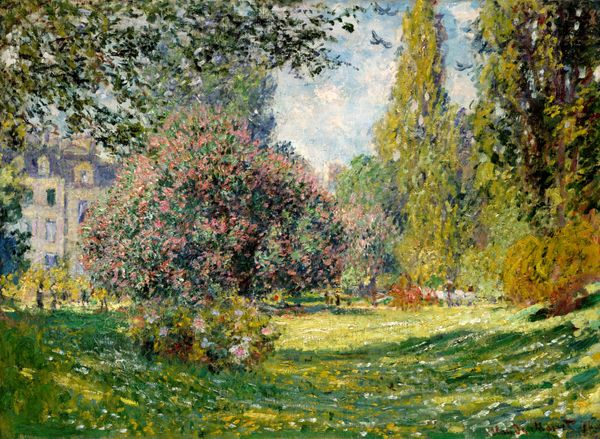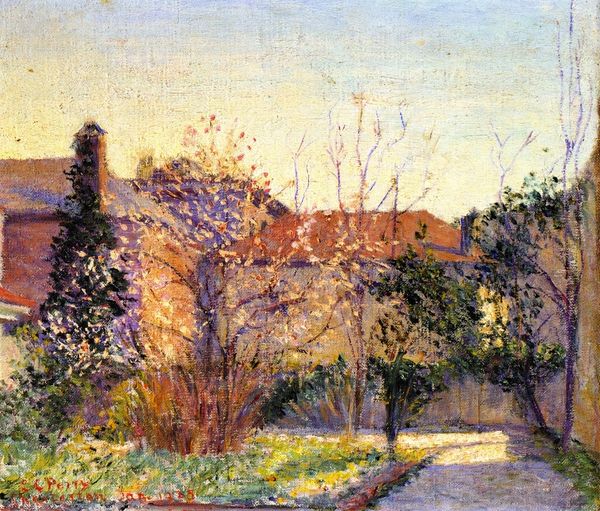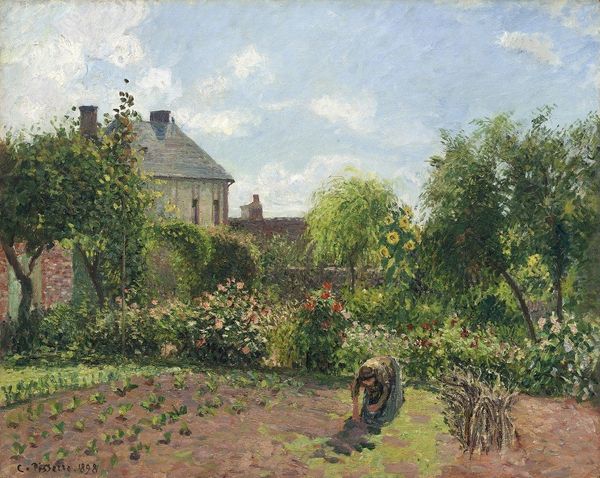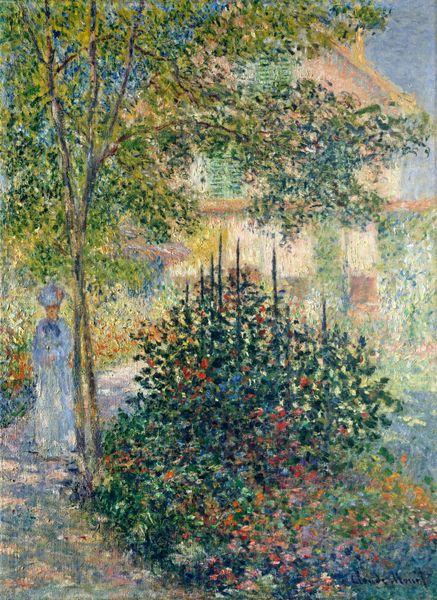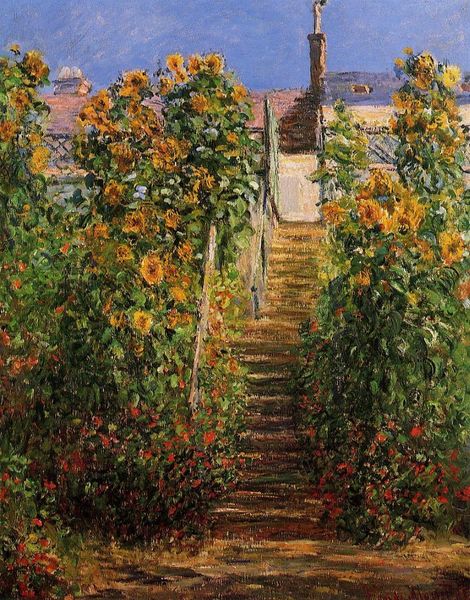
painting, plein-air, oil-paint
#
garden
#
painting
#
impressionism
#
plein-air
#
oil-paint
#
landscape
#
oil painting
#
genre-painting
Copyright: Public domain
Curator: Monet painted this work, entitled "The Garden of Monet at Argenteuil," in 1873. It offers us a glimpse into his domestic life during a pivotal time for Impressionism. The artist utilized oil paint to render what looks to be an atmospheric late afternoon. Editor: It’s breathtakingly ordinary, isn't it? A perfectly pleasant but also unspectacular garden scene. Yet those blooms riot with color and texture, almost a celebration of the everyday. Do the colors symbolize something in particular? Curator: Well, the flower garden as a symbol predates Impressionism by centuries. Yet, here, I think Monet aimed to capture a slice of middle-class leisure that resonated with a rising urban collector base. Gardens offered a comforting vision of nature tamed, and of nature thriving under bourgeois control. Editor: Tamed, yes, but notice how the brushstrokes are far from controlled! There’s a looseness, an almost wild energy, particularly in those dahlia clumps. I see vitality. These dahlia, known for change, may signify social shifts of the time. Perhaps here in 1873 he may well represent this very changing world. Curator: That looseness you identify certainly marks a deliberate move away from academic precision. He was indeed capturing the ephemeral moments of light and atmosphere, aligning himself with a younger, rebellious artistic milieu that prioritized immediate sensory experience. Editor: There are people. Barely visible figures near the garden gate. Do you get a sense that Monet, here, is exploring new boundaries around painting, both embracing established codes while questioning social values by showing new codes for a middle class eager for it all? Curator: Precisely! He's acknowledging tradition even as he pushes its boundaries. It’s an insightful rendering of both the natural and social landscape of his time, made at an exhibition during his breakaway from establishment to show a new view to modern society. Editor: So, it is far more radical than its placid surface would suggest. I’ll never look at Monet’s gardens in quite the same way. Curator: Nor will I. Thinking about the cultural values imbued into those blooms, its wonderful to ponder how flowers have maintained the world over as so emotionally important to humans as this movement started in modern painting.
Comments
No comments
Be the first to comment and join the conversation on the ultimate creative platform.
